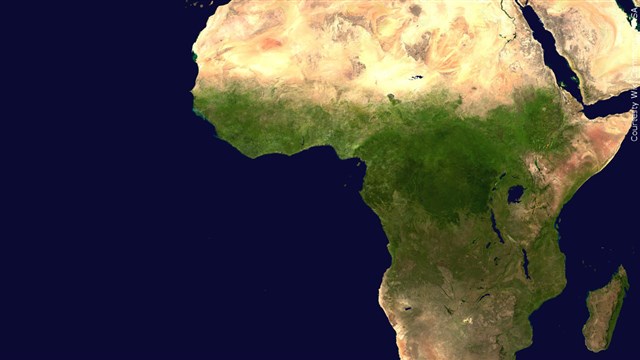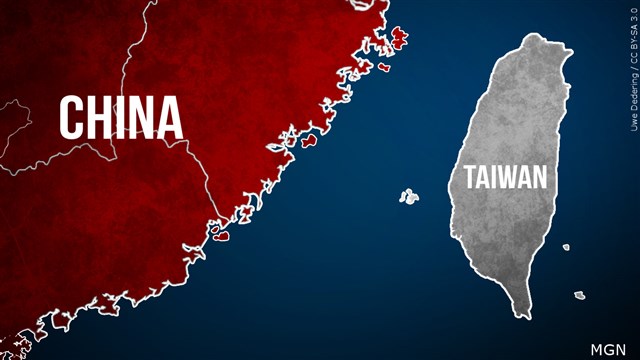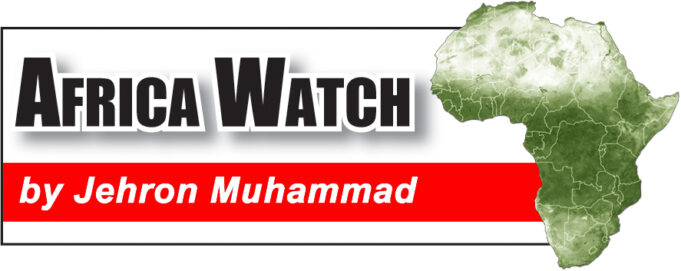China’s new foreign minister Qin Gang made his first trip abroad January 9-16 to the continent of Africa. His trip comes amid changes in how the continent views the West.
It is the decoupling of Western hegemony is how Dr. Tony Monterio describes Africa’s growing dissatisfaction with the U.S.-led Western powers. He told Africa Watch that it was Gang’s first trip abroad. He visited Ethiopia, Gabon, Angola, Benin and Egypt, spokesperson Wang Wenbin said at a daily media briefing. In Egypt, Gang met the secretary-general of the Arab League and in Ethiopia, he met with the African Union.

“This powerful foreign minister makes his first trip to the continent of Africa, sealing in effect a China-Africa alliance, that will include more than economics and business relations—although that is probably the major thing. But in several countries, the Chinese will be allied to nations who will buy military equipment from China,” Dr. Monterio, a W.E.B. DuBois scholar and creator of the Philadelphia-based Saturday Free School for Philosophy and Black Liberation, told Africa Watch.
Wang Wen, a professor and executive dean of the Chongyang Institute for Financial Studies, Renmin University of China, wrote in a commentary that appeared in the China Morning Post, “This is not just about Russia’s radical attempt, through the use of military power, to try to break the U.S.-dominated international order. It is also about the unprecedented rising up of non-Western countries against the established order in search of a more independent stance.”
Dr. Monterio said he agreed with the thesis of Wen’s commentary. He said, don’t forget the Russia-Ukraine war that began in 2022 that, “turned into a war of the West and NATO against Russia.”
According to Monterio, “What this Chinese commenter suggests is that the West is going to lose and this 2022 debacle for the United States Biden administration will, or has begun the undoing of the West.”

He referenced the UN General Assembly and the broader diplomatic world which had assumed that the overwhelming number of African nations would support Ukraine. “And it turns out that the majority of African nations do not support the U.S. position on Russia,” explained Monterio.
“The de-Westernization also extends to a growing de-dollarization in global trade, as countries move away from the U.S. dollar, and a de-Americanization,” noted scmp.com
“The expansion of yuan settlements in trade seen since early 2020 will continue, analysts say, as companies look to hedge concerns over the changing rates in a more complicated geopolitical environment,” the website stated.
Data from international insurance company Allianz Trade showed that the share of Chinese trade settled in yuan rose from less than 20 percent to nearly 30 percent between early 2020 and August 2022, while more than 40 percent of global trade is conducted with U.S. dollars. The U.S. could also lose the new technology competition to China.
According to changeinafrica.com, on the global front, big tech companies such as Apple, Microsoft and Sony are feeling the impact of what is called “chip shortage.” Put simply, chip shortage occurs when the global demand for semiconductor chips exceeds the existing supply capacity. One of the factors contributing to chips shortage is a reduction in the supply of the raw materials used to create these microchips. One such raw material is called Tantalum.
More than 70 percent of the world’s supply of Tantalum is produced in Africa. In addition, Taiwan produces 92 percent of the world’s most advanced semiconductors while the U.S. produces zero.
Asked why the continent is pivotal, Dr. Monteiro responded, “There are many reasons why Africa is the pivotal continent in the world, including its vast natural resources and its huge population somewhere around 1.3 billion.”
Africa has a young population and China has a very large and powerful economy but relies upon Western Asia for oil, Russia for natural gas and Africa for a vast array of minerals. These minerals are important in the age when computers, robots and artificial intelligence—all driven by these small chips, which are manufactured from minerals that are only found in several places in the world but are in abundance in Eastern Congo and other parts of Africa. The continent is the mineral treasure of the world, but it is also the place where the economic development of nations can either be slowed down or sped up, based upon their ties to Africa, explained Monteiro.
Follow @JehronMuhammad on Twitter













